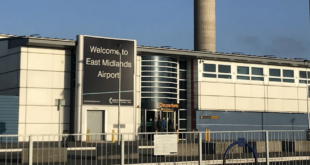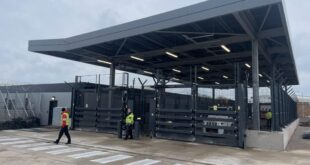Latest posts by Charles Thomson (see all)
UNHAPPY Basildon workers who voted for Brexit have likely made things worse for themselves instead of better, according to a report written by economic experts.
The document, to be discussed by councillors tomorrow night, says Basildon is currently ranked as one of the ten ‘least happiest places in the UK’, as key industries are shrinking and wages are dropping.
The report said unhappiness with the local jobs market likely contributed to the borough’s high proportion of Leave voters in the 2016 EU referendum – but that evidence suggested leaving the EU would in fact make the situation even worse.
It warned that Brexit could cause further damage to Basildon’s fast-shrinking manufacturing industry and lead to shortages of health and social care staff in the borough.
The report, published as part of a council agenda, named key businesses likely to be negatively affected by Brexit.
They included First Data, FDR Ltd, Family Mosaic Housing, Argos, TNT Express, Royal Mail, Leonardo UK, Alpi UK, KFC, the Holiday Inn hotel chain, Whitehouse Leisure International, PMS International and MRS Scientific.
The document, by economic development consultants Hatch Regeneris, said retail in the borough had shrunk by 8 per cent since 2010, whilst manufacturing had shrunk by 33 per cent.
Workplace salaries have dropped by 4 per cent since 2013 and the local economy is ‘vulnerable to automation and future job losses’.
The report said: “The high Brexit vote is also a sign of high polarisation between communities, with many residents unhappy and not able to access and skills and jobs, and feeling a lack of influence over the political decision process.”
But the experts said the Brexit vote was likely to make the problem worse rather than better, pointing out: “The manufacturing sector has stronger ties to the EU than others, meaning it is most likely to be exposed to risk.”
It added that a rise in export tariffs after leaving the EU will mean, “Small and Medium Enterprises will struggle with uplift in costs.”
The report said this would particularly affect the transport and telecoms industries.
It continued: “Nationally, investment commitments are paused from both private and public sector due to uncertainty of the implications of Brexit. Furthermore, there will be a funding gap, following Brexit, from EU schemes.
“A number of sectors are increasingly reliant on an EU migrant labour force, including key sectors for Basildon such as health, social work and public admin. This could lead to a skills and labour workforce gap in key sectors… The borough had a strong reliance on EU workforce.”
The council’s Infrastructure and Inclusive Growth Committee is set to deliberate over the report in a public meeting this evening, where councillors will discuss plans to boost skills and employment.
The report said that business in general had grown in Basildon by 31 per cent since 2010, despite dwindling retail and manufacturing, but the growth was concentrated in financial and professional services, IT, digital industries and construction.
Hatch Regeneris provides expert consultancy to Government, as well as charities, universities and business across the UK.
Councillors will vote tomorrow on whether to spend £100,000 on the creation and implementation of a new Industrial Growth Strategy.
The meeting, held in public, will be at 7pm on Thursday September 19, in the council chamber at the Bas Centre.
Related
Source link



